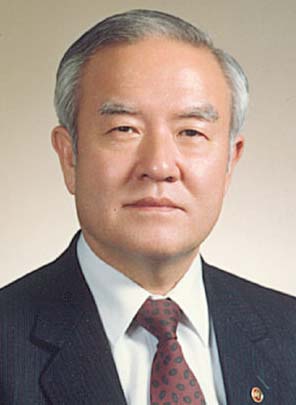 |
|
Cho Sun
|
Cho Sun
Communism attempted to create a utopia under the premise, "to each according to his need, and from each according to his ability." This beautiful vision failed, due to an unreasonable view of class struggle and mistaken interpretation of history. From the early 1980s, America created the idea of free-market economics yielding freedom and prosperity. It thus presented a separate utopia: neoliberalism, one also based on many incorrect philosophical beliefs. Neoliberal policies include Darwinian social pluralism, inheritance taxation, the abolition of the capital gains tax, and the privatization of the social security system, with the ultimate vision to shape the international standard as a reflection of the American standard. There are many common points between the two utopias, communism and neoliberalism. For one, they both view the world in overly simple and general terms. In a given country, there must be an appropriate division of labor between state and market functions, and each country has a different culture and traditions, but communism and neoliberalism do not acknowledge this. Communism views the state as supreme and ignores the function of the market. The Soviet Union rejected any style of communism different from its own. Neoliberalism views the market as supreme and as being able to substitute for the state. Currently, this particular utopia is regarded as the sole path toward globalization. Second, both utopias’ view of the world is merciless. Communism is only for workers and farmers, and creates the most severely inequal society, all the while proclaiming equality. Neoliberalism sees competition as the be-all and end-all, and regards caring for the weak as a responsibility not of the state, but rather of civic groups. It professes democracy, but in reality slouches toward plutocracy. If one looks at the American economy beginning from the 1980s, it is clear that far from forming a healthy global economy, neoliberalism has only succeeded in wounding the American system itself. Seen macroscopically, the astronomical twin deficits are constantly setting new records. On a mircoeconomic scale, the continued privatization of the social security system has weakened the competitiveness of the large enterprises that led the American economy. Industrial management has made its main goal the pursuit of short-term profits for the sake of the stock market, losing in the process the healthy spirit of American capitalism seen in the past.Income disparity is advancing at a rapid pace. The upper class is gaining daily while the real income of workers is not improving at all. Whereas industrial profits in 2001 represented 7 percent of the GDP and had expanded to 12.2 percent of the GDP by early 2006, the real income of a median U.S. household shrunk by 3 percent. Imbalanced income distribution threatens to return America to the wealth disparity it saw at the end of the 19th century. I believe that the healthy development of global capitalism is necessary for international peace and prosperity, and I think that our country’s escape route lies here, as well. That said, it is difficult to think of peaceful and productive globalization created through the philosophy of neoliberalism. Some time ago, I spoke of the necessity for prudence in regards to the Korea-U.S. free trade agreement (FTA) at the Korean Economic Conference. In the short term, there are serious issues in regards to commerce, agriculture, and finance, but also when seen from the mid- to long-term, a FTA will worsen polarization and fail to prevent the weakening of the driving forces of economic growth. The utopia of neoliberalism is becoming difficult even for the American economy to bear. How can the weak shoulders of Korea endure such a burden? I can only hope for the end to debate between half-baked neoliberalist theories.





